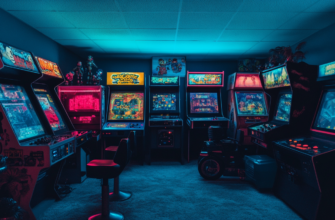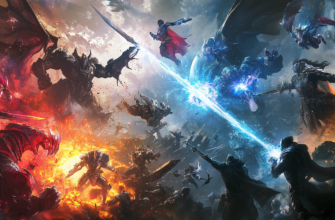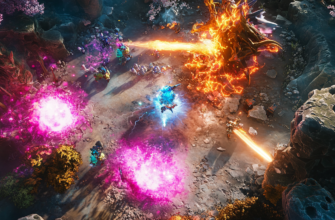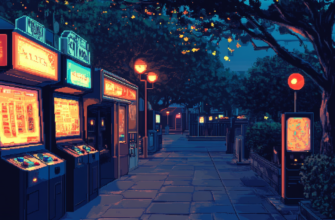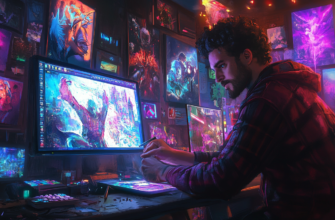Hey, bro! Have you ever noticed how some games just randomly blow up years after their launch? Like, a title that seemed low-key or didn’t make much noise at release suddenly reaches mainstream popularity. It feels like you woke up one day, and now everyone and their gamer cousin is playing this game you barely heard of. So, why does that happen? Buckle in, because I’m about to walk you through the reasons some games take their sweet time before dominating the gaming scene, and trust me, you’ll have plenty of examples from your own collection that’ll come to mind when you hear these reasons.
- What is “delayed success”? Let’s define it first
- Let’s dive into the reasons behind this long-hyped phenomenon, shall we?
- Why do some games get popular years after release?
- 1. Streamers and influencers breathe new life into old titles
- 2. Regular updates and patches can refresh a game
- 3. Word of mouth and community development
- 4. Technological advancements and better hardware
- 5. Exclusive content or events
- Practical tips for jumping into a game experiencing delayed success
- Conclusion: Keep an eye on those sleeper hits!
What is “delayed success”? Let’s define it first
First things first, we need to talk a little about what “delayed success” actually means in the gaming world. You’ve probably played or at least heard of gems like Among Us or No Man’s Sky. These games were released and then, after what seemed like ages, suddenly became the hottest topic in the gaming community. That’s delayed success in a nutshell.
Delayed success refers to games that don’t meet immediate mainstream popularity but gain infectious recognition over time, sometimes years after their launch. When they do explode into people’s Steam libraries or gaming consoles, it’s like they’re fresh out of the oven, even though they could’ve been on the market for a while.
Let’s dive into the reasons behind this long-hyped phenomenon, shall we?
Why do some games get popular years after release?
There are several reasons why some games enjoy a renaissance long after their initial debut, and I’m going to hit you with the biggest ones. Sometimes it’s all about timing. Other times, it’s the game’s own evolution. Let’s figure out what sparks these late flames.
1. Streamers and influencers breathe new life into old titles
Here’s a no-brainer — influencers wield MAJOR power in the gaming scene. Imagine you’re a developer who kind of missed the boat on marketing at release. Fast forward a couple of years, and suddenly one of the biggest streamers gets hooked on your game (maybe because of an update, or maybe they just stumbled upon it). They go live and BOOM — people are rushing to their keyboards to buy the game.
This is exactly what happened with Among Us. It was a somewhat obscure game that launched in 2018, but it wasn’t until famous streamers like Ninja and Pokimane picked it up in 2020 that it experienced a massive rise in players. The social dynamics and hilarious betrayals made it super fun to watch, and just like that, it became a global phenomenon.
Tip: If you’re looking to jump into a game after seeing a streamer play it, don’t forget to consider mods or added community content that might enhance your experience. Many older games have a HUGE modding community.
2. Regular updates and patches can refresh a game
Next up — game devs are always improving their work. I mean, no game is perfect on release, no matter how much hype it has. But the crazy part is, more and more games are being released as something akin to “works-in-progress” (think Early Access or post-launch patches). With committed updates, bug fixes, content expansions, and other improvements, games that flopped at launch can get a second chance with players.
No Man’s Sky is a fantastic example of this. Released back in 2016 with lots of buzz, it disappointed many players initially because of broken promises. Over time, though, developer Hello Games continued to introduce massive updates that added features, improved gameplay, and expanded the universe. By the time the updates rolled around, people were flocking back to the game and loving it. What was once a harshly criticized product became a beloved experience for many.
Tip: Always keep an eye on patch notes and community forums for games you felt were underwhelming at first. Developers might surprise you with significant post-launch morale lifters!
3. Word of mouth and community development
Sometimes, it’s all about the community. Games like Minecraft slowly gathered momentum over time, not because of heavy marketing but thanks to players hyping it to their friends. Word of mouth is powerful, and if a game has an engaging, mod-friendly system, or even an excellent co-op experience, it can eventually find its audience. Communities build around these games, creating viral buzz online through social media, forums, and even memes.
This also ties into games that have a solid modding community. Take The Elder Scrolls V: Skyrim, for example. Skyrim is over a decade old, yet it’s still played religiously by fans thanks to its huge library of user-created mods. Some people even say Skyrim is “immortal” because new mod content keeps it alive.
4. Technological advancements and better hardware
If you’re like me, you’ve probably held off on playing certain games because your rig or console couldn’t handle it at the time. And here’s the gold: As new gaming tech becomes cheaper and more accessible, older games that were too demanding for average setups can finally shine!
Take something like The Witcher 3, which years after release, continues to get more beautiful with hardware upgrades. As GPUs and CPUs advance, players who couldn’t experience the game with max settings before can now jump right in and see the game as the developers intended.
When you’ve upgraded your setup, it’s a great time to revisit games that may have stuttered or lagged before. Trust me, a shiny new graphics card makes all the difference!
5. Exclusive content or events
Ever jumped back into a game because of a limited-time event or new expansion pack? YEP, exclusive content sparks some serious FOMO (Fear of Missing Out). Sometimes developers introduce timed events or DLC packs that bring players back to games they hadn’t played in years. These events can be crossover content, new maps, seasonal celebrations — anything exciting enough to warrant a return, really.
Fortnite does this all the time with in-game concerts and crossovers that bring the audience back in droves. I mean, who can resist the chance to drop into that crazy world and experience something brand new?
Practical tips for jumping into a game experiencing delayed success
Okay, bro, I know you’re probably wondering why it makes sense to re-enter the world of older games. Here are some practical tips for making the most out of these gems:
- Stay engaged with communities: Join forums, Reddit discussions, or Discord servers. The firsthand insights you’ll get from fellow players are priceless.
- Look for beginner guides and tips: If the game has evolved a lot since release (like No Man’s Sky), you’ll want to catch up on new mechanics or changes through player-made tutorials or official dev posts.
- Play with friends or like-minded players: Some of the games that gain steam later do so because their multiplayer or co-op modes thrive with bigger groups. Grab a buddy and dive in together!
- Experiment with mods: As discussed earlier, mods can totally transform older games, giving them new life with creative spin-offs from the community.
Conclusion: Keep an eye on those sleeper hits!
So there you have it, bro. Not all games crash and burn at release. Some just need a little more TLC, either from the devs, the community, or even streamers, to get that delayed success going. Thanks to regular updates, community buzz, new content, and technological advancements, many games can enjoy second (or even third) waves of popularity. Next time you see a game start blowing up years later, you’ll know exactly why that happens!
In the end, delayed success is often just as sweet — if not sweeter — as instant smashing success. So keep an eye on these sleeper hits and enjoy the wonders gaming has to offer, even if it’s a couple of years down the line.
Now, go give those old games in your Steam library a second chance. Who knows — you might find your next obsession there!
“`



